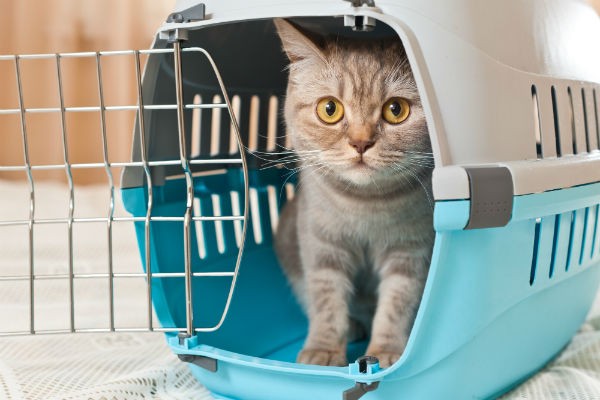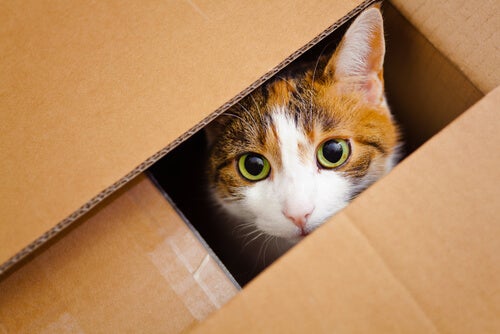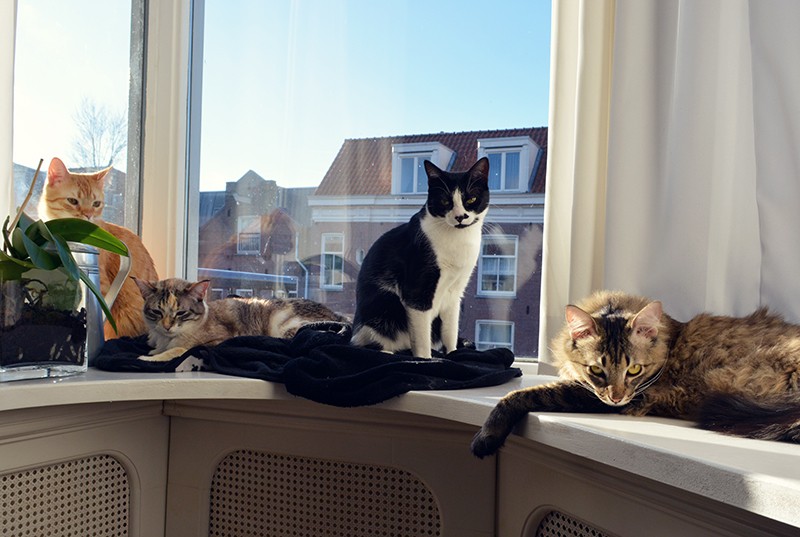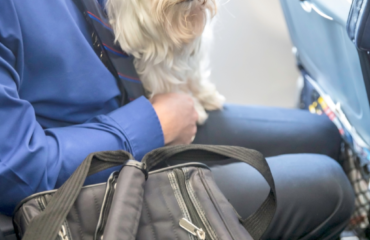
Any cat owner who lives outside Brazil today knows that the most important and also the most complicated part is to start re-educating the cat when moving to another country.
In the same way that the pet parent faces a new culture and new habits, the cat has to adapt to the then unprecedented environment.
However, moving home can be extremely stressful for the pet, causing the animal to be nervous and hyperactive.
So, now imagine you are in the process of moving and still need to control your pet in a crisis? Fortunately, you can avoid this scenario if you consider all the main points.
That’s why PETFriendly Turismo has prepared a complete guide on re-educating the cat when moving to another country, showing the preparations before the move, during and after organizing your accommodation definitively and making your home the best for you and your cat.
Why is re-educating a cat moving to another country so important?

Re-educating the cat when moving to another country before, during and after the entire travel process is one of the most important points due to factors such as climate, lack of knowledge and, above all, the pet’s territorial habit .
That is, the cat sees its current home as its territory and for this reason it is comfortable to eat, sleep, play and feel peaceful.
But when he needs to go to his new home, the pet needs to reconcile with the new habitat. Another way that shows the importance of assertive reeducation is to put it in the pet’s place.
Just as changing a country is an important step for the tutor, moments of insecurity and stress can happen and are natural.
However, our rationality prevents these moments from evolving into more serious situations. In the case of the cat, the support of the tutor is essential for a healthy adaptation and to avoid problems during the change process.
Fortunately, through some care any tutor can re-educate the cat when moving to another country and PETFriendly Brasil will show you what they are next.
How to re-educate the cat when moving to another country in practice
In general, re-educating the cat in changing countries needs to consider points before, during and after the entire move.
The initial care is in relation to the process of traveling by plane for your kitty.
We know that this may not be one of the easiest tasks, and that it can even provide tutors with many moments of misinformation and last-minute rushes to travel with their pet.
Fortunately, there is a complete guide on how to travel by plane with a cat on our blog and all the material is free.
There, you will find all the preparations before the trip and clear all your doubts about topics that can compromise your feline’s boarding.
With this crucially important tip presented, now find out how to re-educate the cat in changing countries.
1. Keep up your habits
When traveling to domestic and international destinations, the care in how to re-educate the cat when moving to another country is to be able to continue the habits already established in the animal’s daily life.
That is, if you feed your cat only in the morning and at night, you need to maintain this habit. The same goes for walks, games, snacks, etc.
It is worth mentioning that this tip is valid for all times during the moving process, even the day of travel.
This regimented routine gives your pet confidence and keeps him away from the possibility of stress and nervousness.
In addition, cats are extremely suspicious and therefore any departure from the usual routine causes moments of crisis on the part of the felines.
So if you find your pet more agitated than usual or, even worse, trembling with fear, know that he is insecure and afraid of losing his habits.
2. Keep your cat
Another important way that can help you to re-educate your cat when moving to another country is to stay by your pet’s side and introduce them to all the rooms in the house.
This way, the feline comes to believe that the environment is under his control and guarantees greater security if left alone.
However, it is not enough to make a quick visit, but rather leave the cat in a room and stay there until it is visibly familiar with the environment, redoing the process until you present the entire house.
Another fundamental detail, when you arrive at your new home, never make sudden changes to the food, toys and bed during the first few days.
If this happens, the cat may feel extremely stressed to the point of physical and physiological reactions.
3. Demarcate the territory
The demarcation of the territory happens through the smell, which contains different phenomena and makes the pet feel at home, and to do this is something very simple and very easy to do.
First, you must sit on the floor and play with your cat in the rooms of the house. Now, if your pet is introverted, you can use old clothes so that he gets used to the environment again.
This tip is essential and guarantees the pet all the security necessary to stay at home alone if necessary.
4. Adapt your new home

Another important detail is to think about the possibilities that the cat has to explore the environments.
If possible, inserting shelves can work well and ensure that the cat is able to explore every corner of the house. Even Alexandre Rossi, Dr. Pet, said in some interviews that the owner should consider helping the cat to explore heights.
However, it is worth mentioning that the environments must have a protective screen until a complete familiarity on the part of the bug. In the early days, the pet may try to escape and return to its old home.
5. Update pet registry
Finally, the last and perhaps one of the most important steps to re-educate the moving cat is to update the records in the new home.
This means that the owner needs to update all documents and ensure that the cat’s registration complies with the new legislation.
And we can assure you that the best way to update your pet’s record is to look for experts.
Fortunately, PETFriendly Turismo has a select team of professionals who are willing to solve this important step towards a complete and definitive reeducation.
If you want to know more, just go to contact a pet tourism specialist!







You must be logged in to post a comment.